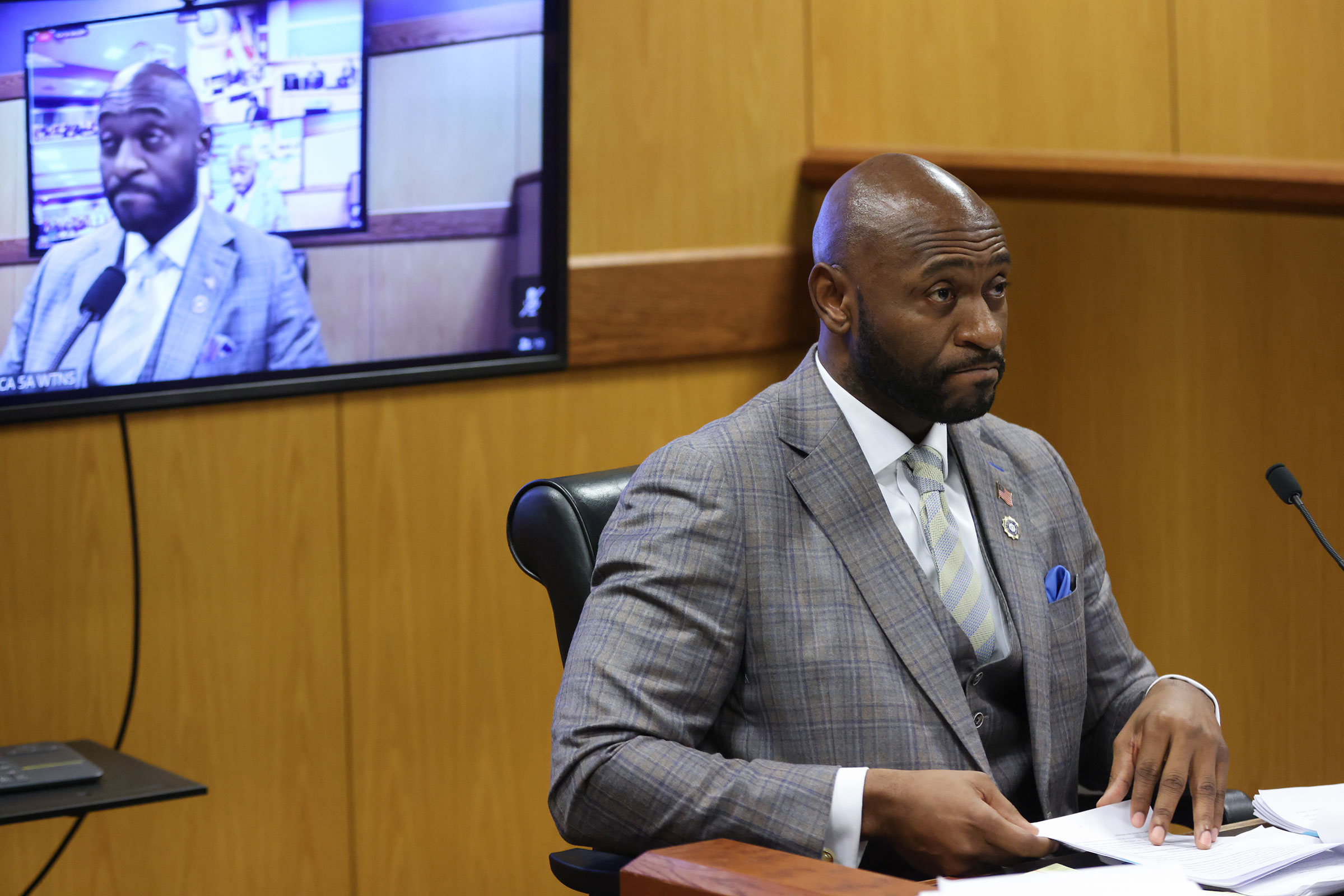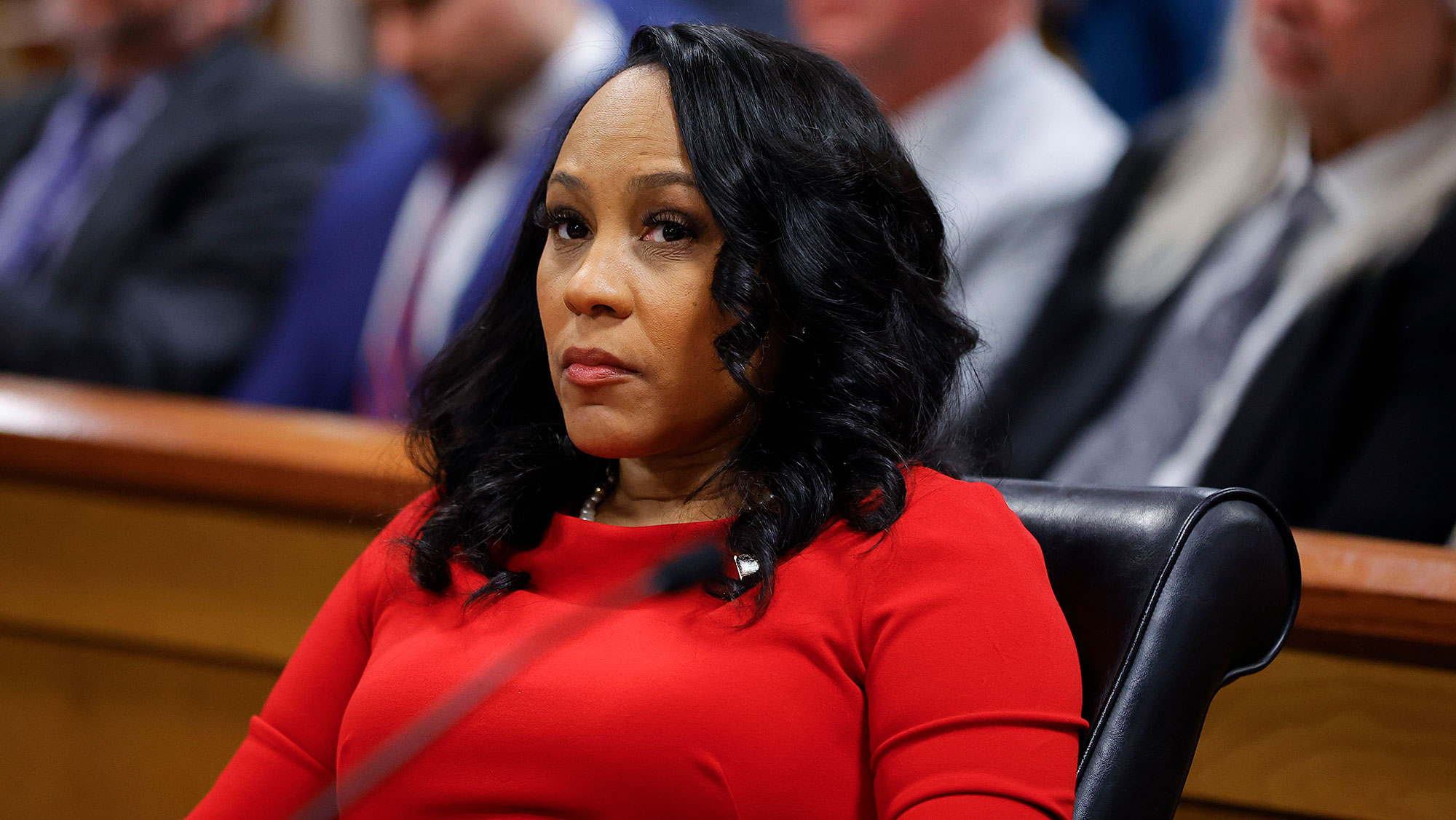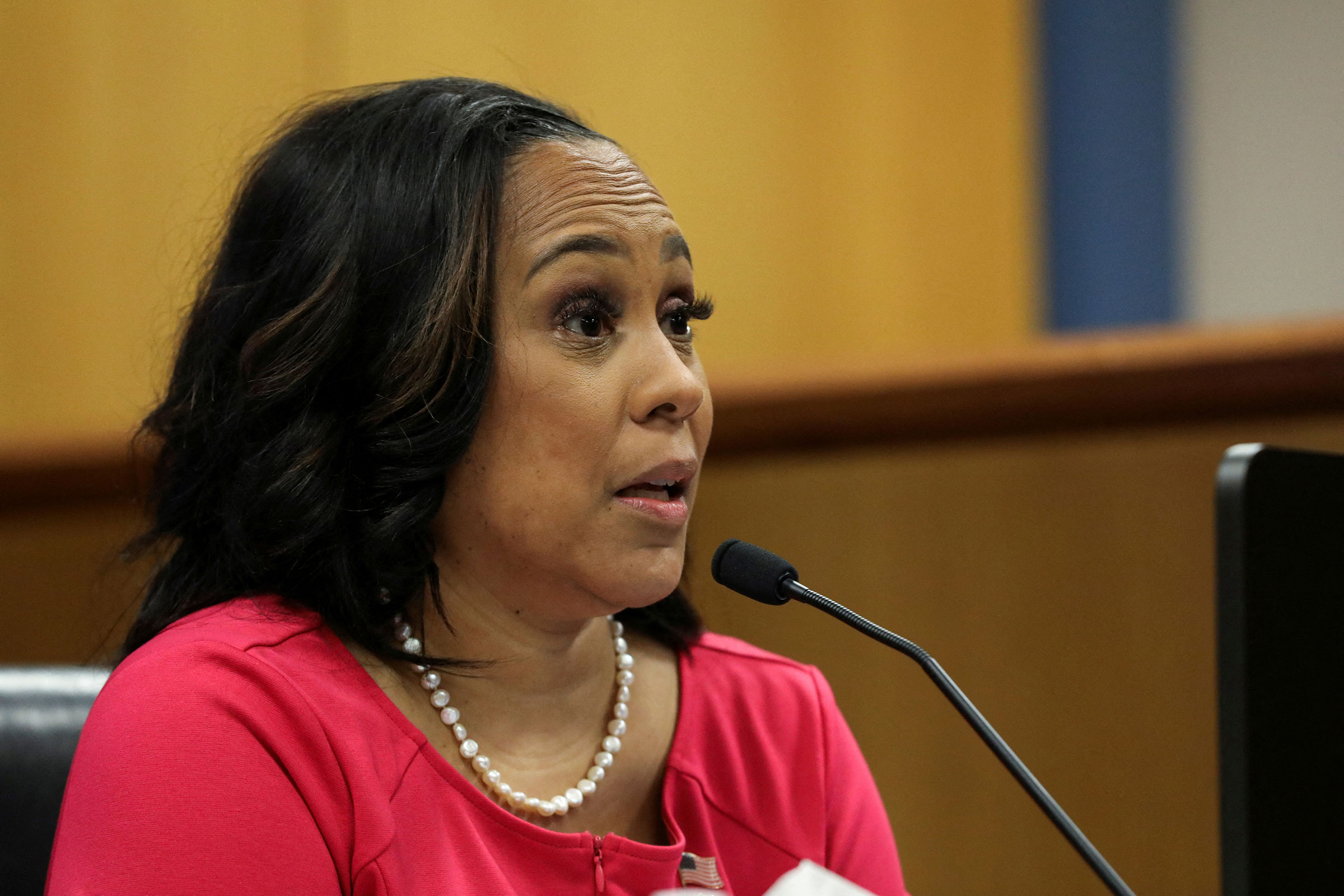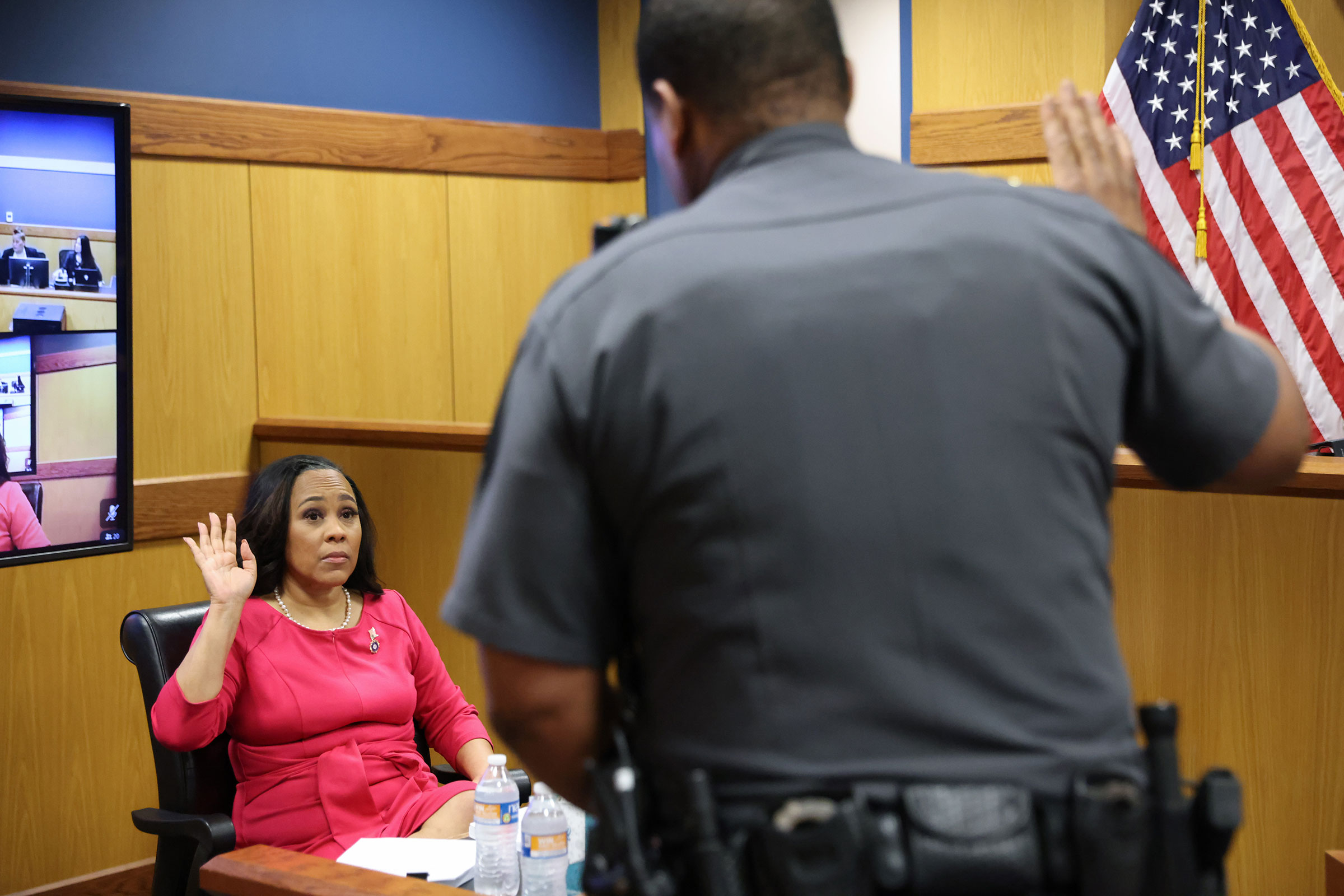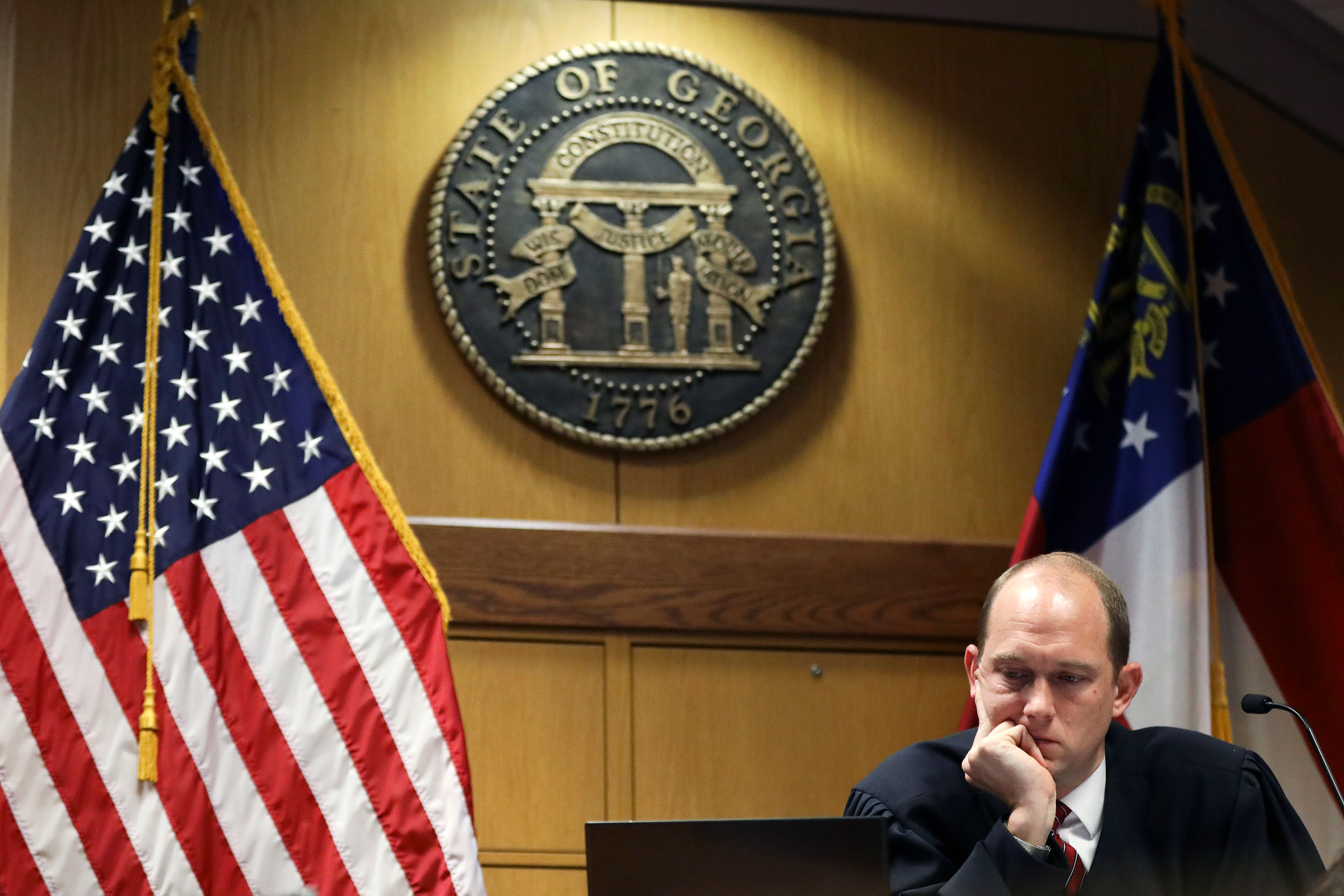
Fulton County Judge Scott McAfee was highly critical of District Attorney Fani Willis and prosecutor Nathan Wade’s relationship, describing it as being the result of “bad choices.”
“Georgia law does not permit the finding of an actual conflict for simply making bad choices – even repeatedly,” he wrote.
The judge described Willis’ fiery testimony last month during one of the hearings over whether to disqualify her as “unprofessional.”
But the judge concluded, “Without sufficient evidence that the District Attorney acquired a personal stake in the prosecution, or that her financial arrangements had any impact on the case, the Defendants’ claims of an actual conflict must be denied.”
He then added: “This finding is by no means an indication that the Court condones this tremendous lapse in judgment or the unprofessional manner of the District Attorney’s testimony during the evidentiary hearing,” McAfee wrote.
